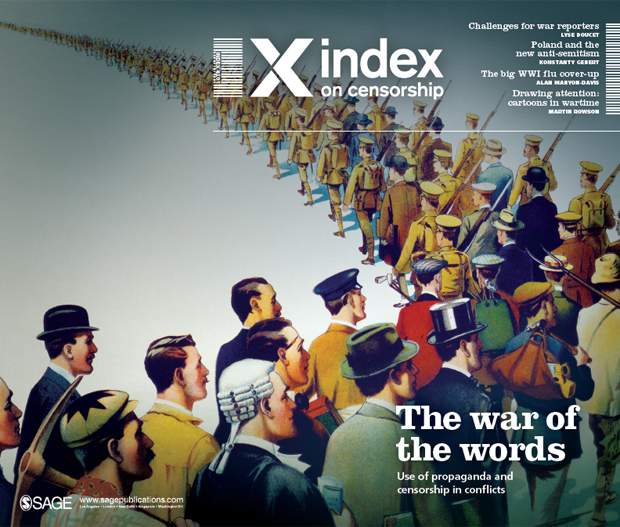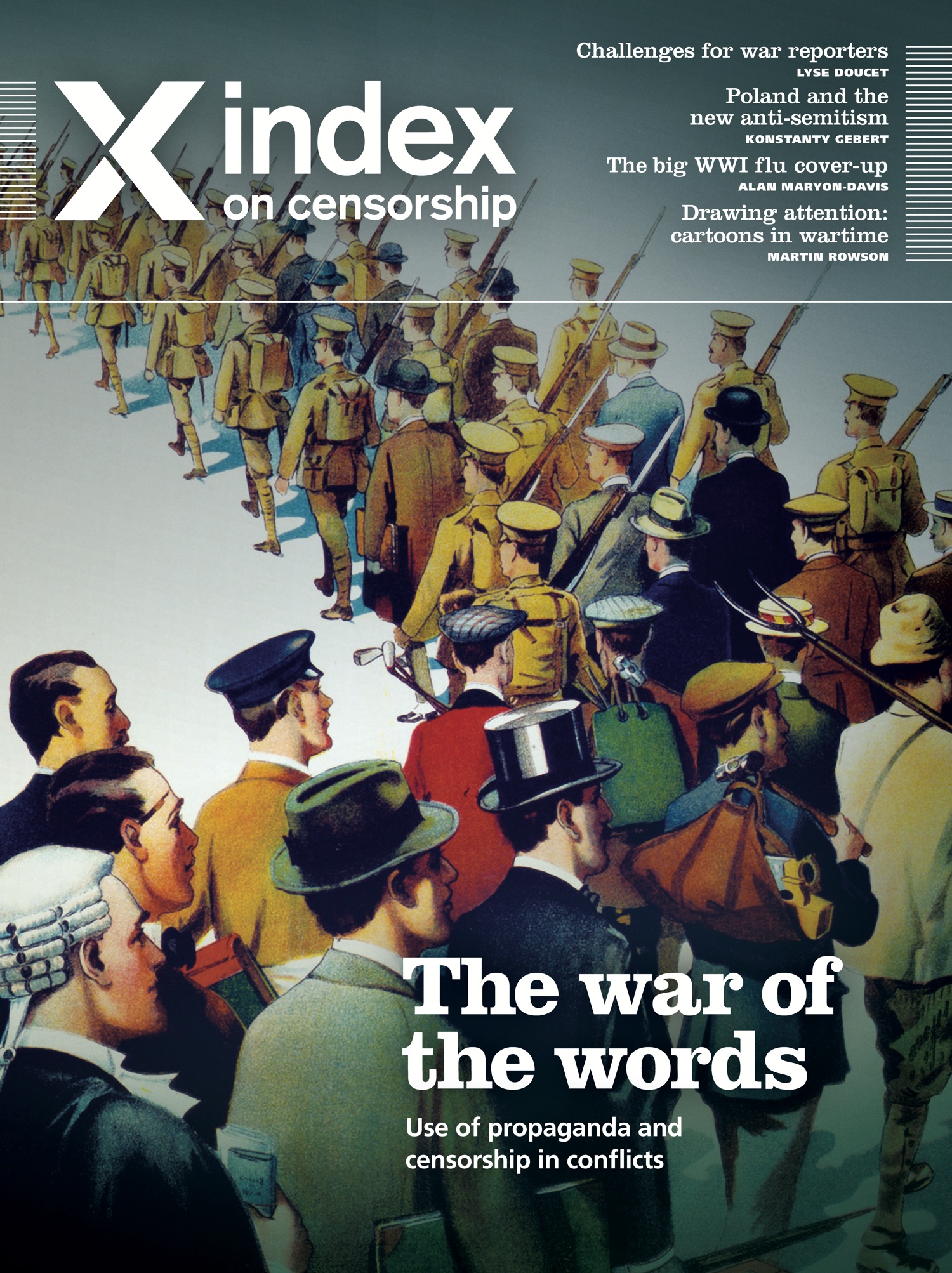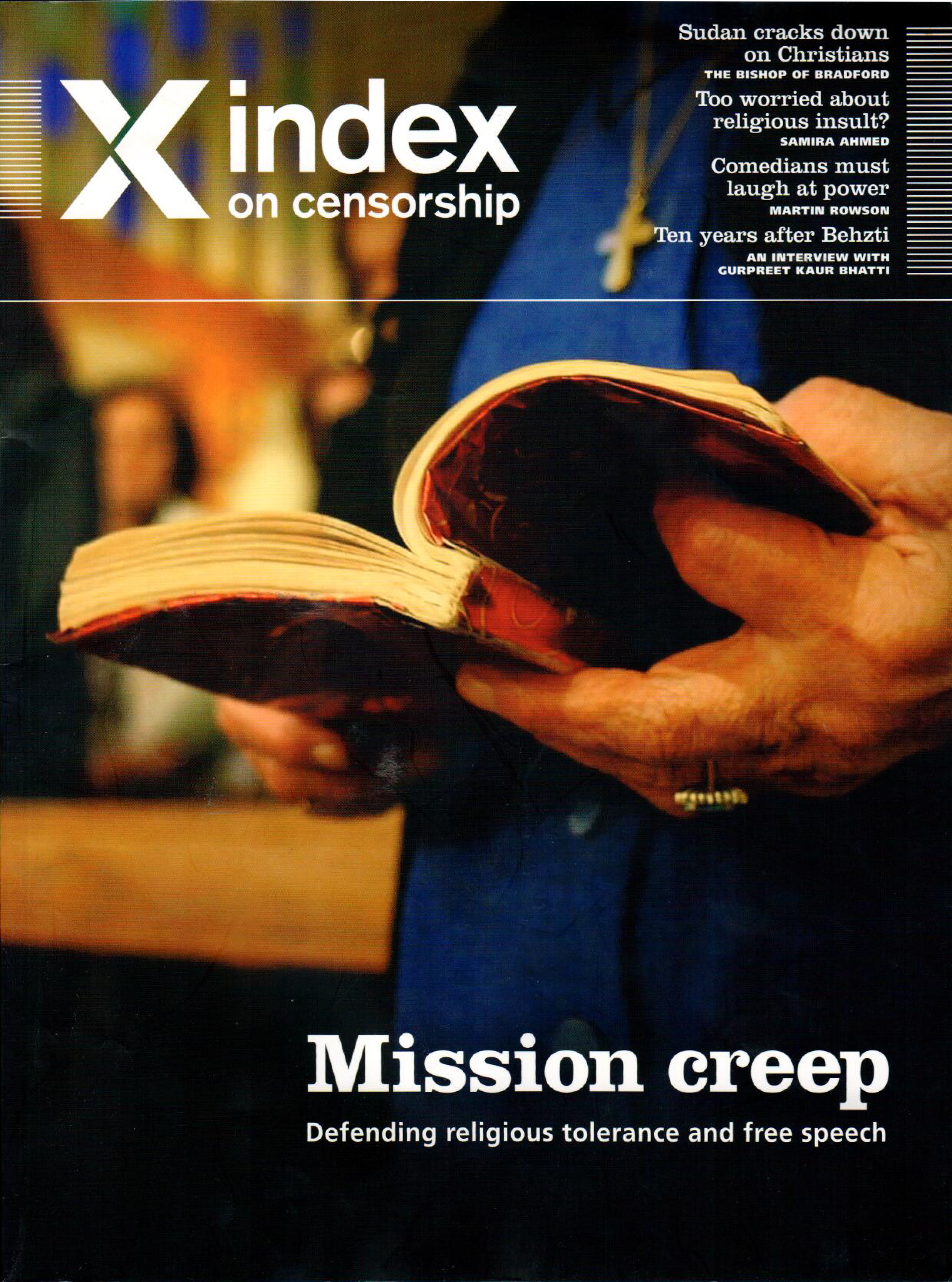In the new issue of the magazine, we include a special report the war of the words on the use of propaganda and censorship during conflicts.


In the new issue of the magazine, we include a special report the war of the words on the use of propaganda and censorship during conflicts.

Documentary filmmaker Johanna Schwartz wrote for Index on Censorship magazine on the censorship and persecution that musicians in Mali have faced from Islamists, with musician Fadiamata Walet Oumar.

In this extract from Will It Pass or Not?–published for the first time in English by Index magazine –Lucien Bourjeily exposes the ridiculousness – and arbitrary nature – of the Lebanese Censorship Bureau.

Our special report, starts with WWI where the current use of the term propaganda was invented and looks at poster campaigns, and propaganda journalism in the USA, but our writers also look at WWII, Iraq, Afghanistan and Syria.

With a special report on religion in the winter edition of the Index on Censorship magazine, Index, along with the Three Faiths Forum, brought together a panel of different religions (and one non-religious) to discuss and debate why their world view is the truly liberating one.

From the magazine: Why does freedom of religion and belief continue to cause conflict in post-Soviet Russia? Alexander Verkhovsky looks at the new blasphemy act and its implications for freedom of expression

From the magazine: The Bishop of Bradford Nick Baines discusses the persecution of Christians in Sudan at a time when minorities are feeling the heavy hand of a leader intent on silencing them

From the magazine: Freedom of expression must trump the commitment to tiptoe around some people’s idea of multiculturalism, argues Samira Ahmed, looking back at the last 15 years

Our special report explores the freedom to choose what we believe and how we practise our beliefs, and the counterbalancing freedom to discuss and question those beliefs.

Why does it feel like England’s universities are swinging back in the wrong direction on gender equality? Rachael Jolley asks
A quarterly journal set up in 1972, Index on Censorship magazine has published oppressed writers and refused to be silenced across hundreds of issues.
The brainchild of the poet Stephen Spender, and translator Michael Scammell, the magazine’s very first issue included a never-before-published poem, written while serving a sentence in a labour camp, by the Soviet dissident Aleksandr Solzhenitsyn, who went on to win a Nobel prize later that year.
The magazine continued to be a thorn in the side of Soviet censors, but its scope was far wider. From the beginning, Index declared its mission to stand up for free expression as a fundamental human right for people everywhere – it was particularly vocal in its coverage of the oppressive military regimes of southern Europe and Latin America but was also clear that freedom of expression was not only a problem in faraway dictatorships. The winter 1979 issue, for example, reported on a controversy in the United States in which the Public Broadcasting Service had heavily edited a documentary about racism in Britain and then gone to court attempting to prevent screenings of the original version. Learn more.